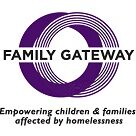The Dallas Commission on Homelessness came up with two dozen recommendations for fixing the seemingly unsolvable homeless crisis in the city in its final report.
Commission members know that no one recommendation alone will solve the problem. And they know local governments don’t have to follow their recommendations. But one thing they all agreed on after months of haggling is that solutions cost money, and North Texas must be prepared to pay.
Among the commission’s top recommendations is that voters be asked to approve $25 million in bond money to go toward adding 1,000 permanent supportive housing units in the next five years for chronically homeless people.
Another long-term goal is to create a new funding stream to help pay for services and housing. That could be a new tax or a small fee tacked onto real estate deals.
And the commission wants a permanent board or commission to oversee the execution of the recommendations. Not everyone agreed on the details of how any of that would work.
After nearly five months of meetings, conducting community surveys and hosting forums on topics relating to homelessness, the group is preparing to hand over the final report to Mayor Mike Rawlings.
The group met for the last time Tuesday at Dallas City Hall. The mayor was there, appearing for the first time at a meeting of the commission he organized.
The 40-member group, made up of Dallas residents and seasoned advocates for ending homelessness, was faced with an enormous task complicated by a growing homeless population, full shelters, limited affordable housing and an increasing number of homeless encampments popping up throughout the city.
At times, the commission clashed, often fracturing between those who have worked with homeless people for decades and those who came from other backgrounds.
But the mayor thanked them for their work, saying the city and county governments hadn’t done enough to fix the problem.
“We haven’t stepped up to this challenge,” Rawlings said. “We have been disorganized, and that’s why this commission has been important.”
Dallas is considered far behind peer cities on the issue of homelessness. Houston receives about twice as much federal funding to deal with the problem. That’s a sign that Houston is better prepared to apply for and receive available federal funds to tackle its homeless issues.
In the past year, Dallas has lost government housing funding for underperforming, basically not moving people quickly and effectively out of emergency shelters into permanent housing. About 1,100 housing vouchers for homeless people, worth about $8 million, go unused each year.
An annual census counted about 3,900 homeless people in Dallas this year, a number that has grown in the past three years. But there are an estimated 10,000 who experience homelessness every year in the city.
About 740 of those counted are unsheltered, meaning they are living on the street, in parks or under highway overpasses.
The mayor organized the commission in May after the closing of Tent City, Dallas’ largest homeless encampment. He said Tuesday that he chose to create a community group as opposed to hiring a consultant firm like the city did to address the loose dog problem because “we wanted this to be an open process.”
“But with openness comes disagreement,” he said.
One of the key disagreements Tuesday was whether the city needs 1,000 or 3,000 additional permanent supportive housing units. Permanent supportive housing is typically used for chronically homeless people who suffer from physical disabilities or mental illness.
And not everyone agreed on whether estimated costs should be included with each recommendation in the final report given to the mayor’s office.
“We need to be specific,” said commission member Tanya Ragan. “We should be there.”
But even in moments of disagreement, the commission reached a consensus on issues they hadn’t been able to compromise on before, namely where additional money to fix homelessness should come from.
Everyone agreed that a new funding source was needed. Other cities have created special funding streams. For example, Miami-Dade County has a 1 percent food and beverage tax that generates millions every year for a homeless trust.
The Dallas commission agreed that it wants to ensure that the city receives the most government housing funds it can. For example, the 1,000 additional permanent housing units could cost about $75 million over five years. Nearly two-thirds of that could be paid for with federal and other funds.
“These funds are available. Other cities are getting them,” said commission member Anne Johnson. She also chairs the board for Family Gateway, an agency that helps homeless families.
“C’mon people. We can do better than Houston,” Johnson said, rapping her fist against the table. “We’ve got to be acting as a system, not individual agencies.” READ MORE
